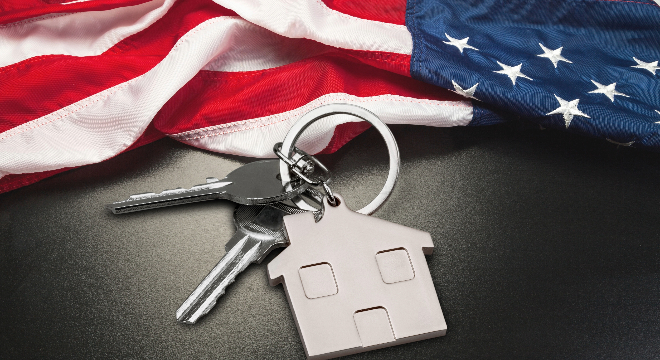What First-Time Home Buyers Need To Know
Buying your first home is equal parts exhilarating and overwhelming.
It’s thrilling to lay the foundation for the rest of your life.
At the same time, it can be stressful to think about how the papers you’re about to sign you sign will shape your entire financial future—for better or for worse.
That’s true of any house purchase, but all the more so when it’s your first time around.
That’s why a trustworthy guide makes all the difference in the world. And at David Haley Mortgage, we want to serve as your compass. To that end, we’ve written this quick but thorough run-down of how to make your first-time Washington homebuying experience a great one.
1. Understand Your Financial Position
All else being equal, your homebuying options and financing costs depend on:
- Your available monthly budget.
- Your credit score.
- Your down payment resources.
Here’s how we’d generally think about them.
Budget
Your recurring income minus recurring expenses gives a rough estimate of your budget for house payments. It’s not an exact science, so err on the conservative side:
- Leave room for one-time expenses; houses have plenty of those!
- Don’t bank on potential windfalls.
You might be surprised how many potential buyers don’t have a clear picture of their monthly cash flow.
If you’re in the same boat, it’s OK. You might never have needed to go through your finances with a fine-tooth comb.
But that’s exactly what lenders will do.
If you know your numbers from day one, it helps us to zero in on the right loan products and price ranges, and helps you to move quickly and smoothly through the whole process.
Now’s the time to crack open Excel, look back over the last several months of earning and spending, and figure out things like:
- Reliable, recurring earnings that are the basis of your spending power. This primarily includes salaries, but consider things like dividend and royalty income, too.
- Windfalls that might’ve boosted your savings for a down payment, but aren’t expected to happen again.
- Fixed or baseline expenses like rent, food, utilities, transportation, and other essentials. Retirement savings and “emergency fund” contributions arguably fall in this category, too!
- Discretionary expenses, i.e., virtually everything else. Travel and entertainment obviously fall in this category, but so do investing and saving. The litmus test here is whether you could, hypothetically, curtail this line item without suffering in the short term.
- One-off expenses, like major purchases or unexpected medical costs, that aren’t representative of your normal lifestyle.
Your maximum possible spending power is roughly the average of your reliable income minus baseline expenses over the last several months.
However, life happens. Moreover, houses bring all kinds of new expenses you probably haven’t borne before. We’ll elaborate on them later.
For now, suffice it to say that the best way to avoid stress is to build breathing room into your budget.
Credit score
Your FICO score is a one-number summary of your track record with debts and other financial obligations. From a lender’s perspective, it’s a sign of how likely you are to repay your loan on time.
Unsurprisingly, a higher credit score opens the door to lower interest rates or a lower down payment.
For all intents and purposes, 500 is the minimum credit score to buy a house. It’s sufficient for an FHA loan with a 10% down payment. The FHA also offers 3.5% down payments for scores of 580 and above.
Private loans don’t have a mandatory minimum credit score, but 620 is a common standard. Interest rates may be significantly lower starting around 660+. Those in the mid-700s (and up) will see the most competitive rates on average.
Many prospective buyers fall somewhere in the middle: their score is sufficient to buy a house, but insufficient for great rates. If that’s you, then you might wonder about postponing your purchase until your FICO score improves.
The catch is that interest rates (not to mention house prices) may rise for everybody during that time. It’s a deeply individual decision that’s worth discussing with a mortgage professional and/or financial advisor.
Down payment
A higher down payment reduces the lender’s risk. All else being equal, that means a lower interest rate and less or no mortgage insurance.
(Washington is a non-recourse state, meaning lenders can’t claim anything beyond the house itself. That’s one part of why your equity plays such a large role.)
However, a higher down payment also ties up more cash that could be used for other purposes. In finance jargon, this is known as the “opportunity cost.”
For example, let’s say you carry significant credit card debt, and have some cash available. You could a) pay it off now and reduce your down payment, or b) carry it a while longer but maximize your down payment. Option a) means paying less credit card interest but more mortgage interest; option b) means the opposite.
That’s why the right choice depends completely on your situation, priorities, and opportunities. No one down payment percentage is optimal for everyone.
Rather, the goal is to figure out what amount strikes the right balance for you. David Haley and team have walked countless new buyers through this process, and can help you to do the same.
2. Get Preapproved
Once you’ve got a handle on your finances, it’s time to get preapproved. Preapproval is a preliminary OK from a lender, which tells sellers that your offer is worth taking seriously.
It means the lender is theoretically willing to lend you up to a certain amount, based on a review of your finances and credit history.
However, it’s not a promise to lend you anything. That comes later, once you’ve identified a property, applied for a mortgage, and gone through a due diligence process known as underwriting.
As for the preapproval amount, aim for the higher end of your price range. There’s no obligation, so it simply keeps your options open.
In any case, it’s only valid for a limited period: often 90 days or less. It’s best to wait for preapproved until you’re actively looking for a house.
Finally, let’s clear up some terminology. You may hear “prequalification” and “preapproval” used similarly, but strictly speaking, they’re entirely different.
- Prequalification is a more superficial check into whether you’re likely to qualify for a mortgage, and at what sort of rate. It’s helpful for personal planning, but it doesn’t carry any weight with sellers.
- Preapproval is based on more detailed vetting of your actual financial documents.
3. Explore WA’s Housing Programs:
The State of Washington offers several programs to help first-time buyers get into their first home.
The best starting points is the Washington State Housing Finance Commission (WSHFC). Its programs include:
- Home Advantage Program loans for a minimum 620 credit score, maximum 50% debt-to-income ratio, and less than $180,000/year in income.
- House Key Opportunity Program loans for borrowers with lower income, lower credit scores, or little/no credit history.
- Statewide down payment assistance (DPA) loans for certain Home Advantage borrowers, House Key Opportunity borrowers, veterans, or disabled borrowers and/or their family members.
- Local DPA loans for residents of Clark County, east King County (ARCH member areas), and Bellingham.
Before applying for any of these loans, you’ll need a completion certificate from a WSHFC-sponsored homebuyer education seminar. Seminars are free or inexpensive, take roughly a day, and are available live, online, or via self-study. Your certificate will be valid for two years, so there’s no harm in attending one as soon as possible.
Eligibility, terms, and income limitations differ for each program. Discuss your situation with your mortgage advisor to make sure you’re not leaving any potential assistance on the table.
4. Find the Right Real Estate Agent
Local expertise might be the single most valuable quality you can find in a real estate agent.
Washington’s real estate market varies enormously between regions and even between cities and neighborhoods. For instance, you might encounter bidding wars in a “hot” area just miles from a mellower market.
Sure, the data sets are at your fingertips, but they raise difficult questions for first-time buyers.
- What drives this crazy competitiveness (or lack thereof)?
- How do you identify truly comparable properties?
- What makes for a competitive offer?
- What hidden costs might be unique to this block/neighborhood/city?
Those are some of the key issues that an experienced local real estate agent can answer. One who eats, sleeps, and breathes your local market—and who’s been privy to just about every sale in town.
5. Prioritize Your Needs Vs. Wants
You already know you need to balance needs versus wants, but it’s especially important with your first home. Spending and saving both compound over time, so your first purchase plays an outsized role—for better or worse—in your financial future.
Want a waterfront view in Seattle? A mountain backdrop in Spokane? Ample space and a custom interior to view it from?
Fair enough.
If you’re in the position to acquire it comfortably, then it may be the most satisfying money you’ll ever spend.
But if your preferences would stretch your budget to its breaking point, then it’s time to pare back.
Of course, as a first-time buyer, your wants might not be so extravagant. You’re probably focused more on dedicated office space or room for a small garden, not grandiose views and magazine-worthy architecture.
It’s the same principle.
We’ve seen (and will continue to see) high prices alongside high rates for some time. More than ever, scrapping the nice-to-haves will not only make it easier to find a property in the first place, but will fortify your finances against whatever the future holds.
6. Explore Different WA Neighborhoods
From the tech hubs of Redmond and Bellevue to charming towns on the Olympic Peninsula, Washington has an area for every lifestyle and most budgets.
It’s worth the casting a wide net.
That said, the most important quality-of-life factors are hard or impossible to capture through online listings and Google Maps. Does it feel safe? Do locals seem optimistic about the place? What’s it like to handle your usual errands and mundane tasks? Could you maintain your hobby, side business, or other avocations?
In addition to visiting the area yourself—ideally several times—this is where veteran local agents are worth their weight in gold.
7. Understand Total Homeownership Costs
Now that you’ve zeroed in on a town or even a specific neighborhood, it’s time to figure out exactly how much it’ll cost to live there.
Property taxes and homeowner’s insurance vary regionally within a stage. In most cases, they’ll be similar or identical within and between neighboring towns.
HOA dues are more variable. They’re rare to nonexistent in older areas, but common in newer developments—especially large, master-planned ones. HOAs range from inexpensive and lenient to pricey and, shall we say, active.
They have their distinct pros and cons, which are beyond the scope of this article. Budget-wise, it comes down to the cost of dues and the cost of mandatory maintenance. Special assessments are a major variable, but by their very nature, they’re hard to predict unless the HOA has a long history of unexpected charges.
A local agent can give you a good sense of what’s normal in the area or even in the specific neighborhood. Ideally, chat with a few current residents, too, for firsthand information about You’ll get the best information from chatting with multiple local residents, and
On top of all these fixed costs, your biggest budget line item is ongoing maintenance. It varies wildly depending on the quality and age of construction, the consistency of prior upkeep, and the recency of major repairs.
A good rule of thumb is to set aside 1% of property value per year for repair and maintenance. For example, if you owned a $500,000 house, then you’d expect roughly $5,000/year in upkeep. Naturally, that figure would rise if you hired out minor tasks like pruning, touching up paint, or general housekeeping.
Maintenance expenses tend to be large but infrequent. Homeownership often seems surprisingly affordable…until the water heater fails or the roof leaks. Monthly contributions to your maintenance fund will help smooth this out.
8. Inspections Are Key
A home inspection is an evaluation and report by a licensed third party. It covers things like general wear, construction defects, major electrical and mechanical systems, and regional issues like mold and water damage.
Inspections aren’t usually mandatory, but we can’t overstate their importance. That goes double for first-time homebuyers, who generally aren’t familiar with the plethora of issues that a house can have.
First and foremost. the inspector’s report can help you avoid life-changing surprise expenses. And if that’s not enough to convince you, remember than serious findings or previously undisclosed issues also give you leverage for negotiation.
Incidentally, you might consider specialized inspections for any area(s) where the general home inspector finds issues. These are more detailed examinations by a professional in that particular field or trade. For instance, foundation issues might warrant a structural inspection, or questionable wiring may be worth an electrical inspection. They’re not standard, but more of a next step to address serious concerns.
9. Be Ready to Negotiate
House sales are negotiable in several respects, including:
- Purchase price
- Earnest money
- Inspection, financing, and appraisal contingencies.
Sometimes, in normal markets at normal times, your agent will be able to talk the seller down and add robust contingencies to give you ample flexibility.
In more frenzied situations, it’ll be all your agent can do to get your offer taken seriously—even with a price above asking, generous earnest money, and minimal contingencies.
Good agents have their fingers on the pulse of recent offers in the area, so they’ll be the best resource for offer terms and negotiation tactics.
10. Understand the Closing Process
It’s exciting that you offer’s been accepted, but don’t breathe a sigh of relief just yet. Two major things still need to happen before the seller hands over the keys:
- The lender will require an appraisal. It puts a more formal value on the property, so the bank can better weigh the potential risk. If your offer includes an appraisal contingency, then the appraised value will also determine whether you’re obligated to proceed with the purchase.
- You’ll submit your mortgage application for underwriting. This can take multiple weeks, especially in atypical situations like poor credit or a high debt-to-income ratio.
All the while, there are also some administrative tasks like title searches, opening an escrow account, checking off contingencies, and so forth. All told, the closing process often takes about six weeks from going “under contact” to signing the final paperwork.
Conclusion
Washington State is an unparalleled part of the world. Vibrant cities, stunning nature, diverse communities, and an extremely advanced economy make it a first-rate place to put down roots.
But navigating our hectic market can be a lot for first-time homebuyers to manage.
Choosing a mortgage partner with years of experience and profound local knowledge makes all the difference in the world.
David Haley and his colleagues are here to help prospective homeowners build a solid financial foundation, find the right home loan, and maintain peace of mind at every step along the way.









